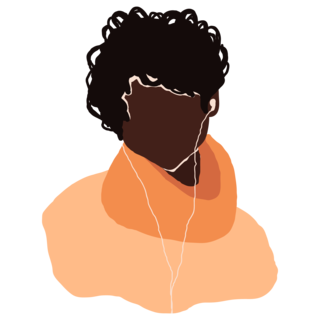Bias
How White Therapists Can Help Black Clients—Right Now
What not to say to Black clients dealing with systems in the United States.
Posted October 23, 2020
“Just like all of us believe that no one can be a good therapist without going to therapy… I now believe that no one can be a good therapist without learning the impact of systemic racism on the people that we serve.” —Mary Pender Greene, LCSW-R

The best advice on being a clinical supervisor and therapist (and an overall great human being) came from an executive leadership duo I know in NYC. Mary Pender Greene, a Black American woman, and Alan Siskind, a Jewish American man, both psychotherapist clinicians, were both Executive Leaders of the Jewish Board years ago.
They always talk about how Alan, as the direct supervisor of Mary, recognized the day he was not really there for her as a colleague and supervisor. After a strenuous morning, she had revealed to him the perils of her travel as it related to race. Her pause of divulging this to him that morning was not lost on him.
Alan echoed Mary’s statement: “If your supervisee can’t come to you and say, ‘It’s hard to be Black today,' then you are not doing your job as a clinician.”
Mary explains that a true supervisory relationship requires the ability to bring difficult conversations to the supervisor.
“Supervisees need permission to bring topics to you. You need to be prepared to have this conversation. It’s your job as a leader. It’s your job as a therapist.”
This dynamic exists for the therapeutic relationship, and in fact, it rings even more true. The required dynamic between therapist and patient is not something that can readily be fixed and can perhaps never be reconciled. It is a skill that has to be practiced, failed, and tried again, which is scary for therapists.
Real trust, and the deeper work of therapy, will not be achieved unless [the therapist] is able to enter her client’s racial world. In this world she, as therapist, is a healer. As a White person, she can also be an unintentional abuser with the potential to inflict harm through a lack of knowledge of, and thus responsiveness to, [her client]’s daily experiences of racism related stress" (Pender Greene, Blitz, 2011).
A Black American colleague of mine cherishes her white therapist: a Jewish woman who is conscious, willing to learn, open to her racial transgressions, and is a dedicated white co-conspirator who helped her in a painful divorce. This therapist was able to help her work through the relational traumas of her split and support her through the racial aspects involved. Race was a topic they talked about frequently. The therapist was able to hear where she made mistakes and hold and support my Black American friend’s conflicts and tensions as an equity warrior in education and in her relationship.
However, after the most recent Black lynching, my friend found herself skipping her weekly therapy session with her beloved therapist.
“I woke up and thought about what I needed that day. While she has been such a radical support for me in so many racially charged situations, I was reluctant to jump into a conversation with her that particular day. About my relationship, yes. About the lynching, no. Not today."
It is important for white therapists and white people in general to know: You are not the problem, we know that, but sometimes, when the pain is striking, it’s just hard to look at you. To be in space with you. And because white-dominant culture is so pervasive, you have been taught ways of acting that can cause harm, unknowingly, especially in moments of pain. Sometimes white people feel accused, but they are almost never being accused. We may not be able to pinpoint the discomfort the moment it is happening. And the burden is on us, always, to recognize it. So, sometimes we want to retreat to what feels a bit safer—to protect ourselves and protect our relationship with you.
And, white people who have Black wives, Black husbands, Black children, Black best friends, Black bosses, Black dog walkers, etc.—that camp can be the hardest for a BIPOCs to console, when we are the ones feeling unsafe or devalued in the first place.
Another Black friend said to me his white therapist was unable to recognize:
“You, as a white person, are living in the present, and my Black body is in the past, present, and future. We are in the micro, mezzo, and macro, all the time. We worry about ourselves, our kids, our parents, our ancestors, our safety, our stress, and the toll on our bodies before, right now and later.”
First, we need white therapists and POC therapists to give permission to talk about race in sessions. And then, we need you to create connections and facilitate referrals to people who can work on those issues with us, too. Because to be anti-racist and anti-oppressive means to center LGBTQ life, to center life with disability, and to center Black life.
References
Mary Pender Greene, LCSW-R, CPG, Psychotherapist, President and CEO of MPG Consulting
The Elephant Is Not Pink: Talking About White, Black, and Brown to Achieve Excellence in Clinical Practice, by Mary Pender Greene and Lisa Blitz
Strategies for Deconstructing Racism in the Health and Human Services
Alma J. Carten, Mary Pender Greene, Alan Siskind
Resmaa Menakem, 2017, My Grandmother's Hands: Racialized Trauma and the Pathway to Mending




